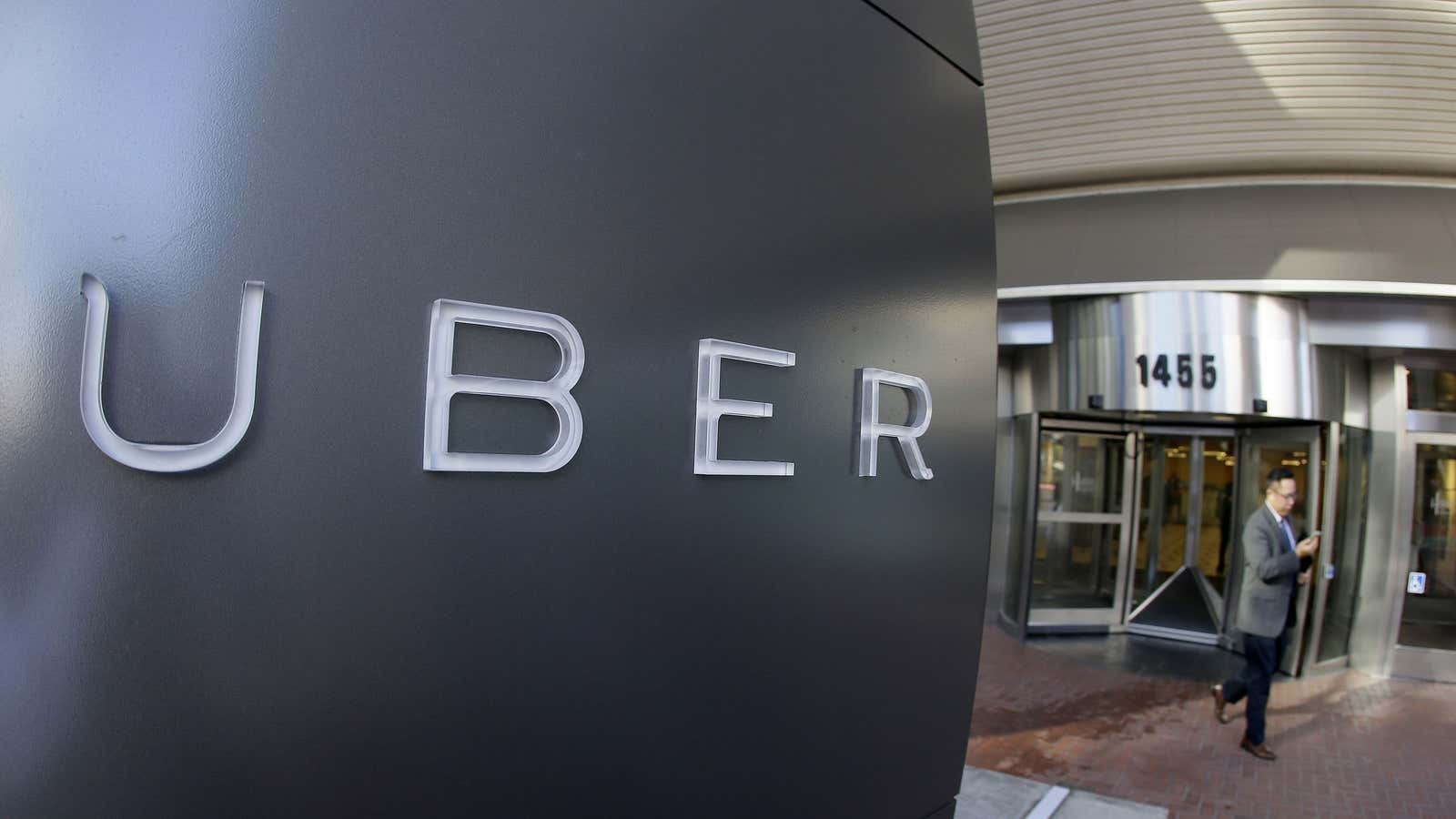Uber and Lyft have suspended service in Austin after losing a local election in the Texas capital over the weekend.
On Saturday, voters in Austin came out against Proposition 1, upholding strict ride-hailing regulations passed by the city council in December and dealing Uber and Lyft a crushing loss in a game of political hardball.
The rules that Austin affirmed (by 56% to 44%) are more restrictive than ones the companies face in most other jurisdictions. They require drivers for ride-hailing services to pass fingerprint-based background checks, identify their cars with company emblems, and avoid picking up and dropping off passengers in certain lanes. They also impose a variety of data reporting requirements on the companies.
Uber and Lyft spent a combined $8.7 million to support Proposition 1 via their lobbying committee, Ridesharing Works for Austin. That’s an unprecedented sum in Austin local politics, and more than 60 times what the other side strung together from roughly 500 individual contributions, according to campaign finance filings.
Here’s another way to look at that crazy statistic: Based on the final poll counts, Uber and Lyft ultimately spent about $225 for each of the 38,000-odd votes they received. The price of a fingerprinted background check for a driver is $40.
The nay vote doesn’t prohibit Uber and Lyft from operating in Austin, and indeed, on Saturday night mayor Steve Adler invited the companies to stay.
But both companies had threatened to depart the city should the proposition fail. After the loss at the polls, Lyft said it would shut down at 5am and Uber at 8am today (May 9).
Uber and Lyft say the city’s rules, and in particular its insistence on fingerprinted background checks, make their services inoperable. This is despite the fact that Uber has operated for more than a year and a half in Houston, despite fingerprinting requirements. And it has done the same for five years in New York, a thriving market.
“Disappointment does not begin to describe how we feel about shutting down operations in Austin,” Chris Nakutis, Uber’s general manager of Austin, said in a statement.
Lyft broke the news to its Austin users in an email. “We’re very disappointed to leave the Lyft Austin community—and we hope to come back soon,” the company wrote. “If you’d like to help make Austin rideshare-friendly again, reach out to your City Council member and tell them.”
